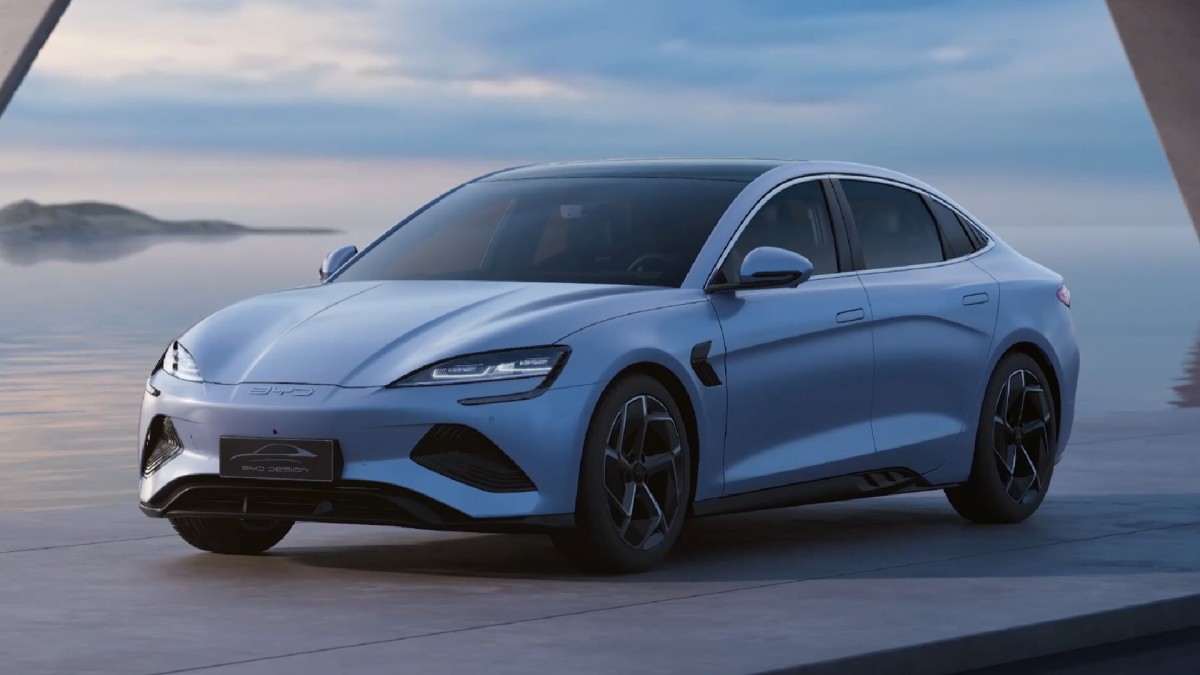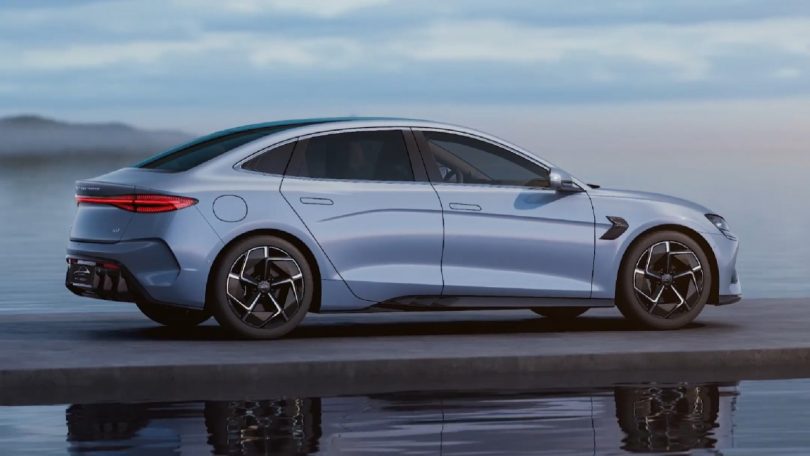BYD is planning to introduce its latest electric vehicle, Seal, at the Beijing Auto Show. However, the brand has revealed the exteriors of the BYD Seal electric vehicle. The Seal EV will be based on BYD’s e-platform 3,0. The four-door EV is a follow-up to BYD’s Ocean-X concept and uses one of the many terminologies themed upon Ocean life. The electric car will likely become the rival to the Tesla Model 3 upon launch.
BYD Seal – Highlights
BYD Seal comes with a dynamic design language with futuristic cuts and crease lines. The car features an aerodynamically curved roof that lands far into the rear deck, giving the Seal EV a short boot lid. The front of the vehicle is relatively flat and features headlights and a front bumper nearly identical to the concept. The electric car also features a long bonnet with power bulges and a fairly rakish windscreen. The Seal also comes with flush door handles to improve the aero-efficiency and keep the futuristic design lines clean. On the rear, the BYD Seal features a wraparound taillamp with an aero-optimised diffuser and air curtains on the alloy wheels.
BYD Seal – Dimensions and Interior Space
Previously leaked documents suggest that the BYD Seal measures 4,800mm in length, 1,875mm in width, 1,460mm in height and 2,920mm in wheelbase. To put things into perspective, the Tesla Model 3 measures 4,694mm in length, 1,849mm in width, 1,443mm in height and 2,875m in wheelbase. This makes the Seal slightly larger than the Tesla Model 3. The EV is also likely to be optimised to offer maximum space on the inside. While interior details are sparse, the Seal will likely come with all the latest bells and whistles. This includes the newest generation telematics and connected features.
BYD Seal – Powertrain and Range
The BYD Seal is likely to come with an 800V electric architecture. The brand could offer multiple powertrain options, including a 201 Hp or 308 Hp electric motor mounted to the rear wheels. The brand could also offer a dual-motor setup with 214 Hp on the front and 308 Hp on the rear. The car is also likely to come with a Lithium FerroPhosphate battery pack. The battery is likely to be capable of returning a range of around 700 km on a single charge.
Should the BYD Seal Come to India?
Currently, the electric vehicle buying sentiments are high in the Indian market. For example, Tata Motors, one of the leading electric vehicle manufacturers in the country, has delivered 712 Tata Electric Vehicles in Maharashtra and Goa in a single day. The brand also recently introduced its latest EV concept SUV which the brand plans to put into production in 2024. Similarly, Tesla is also planning to enter the Indian space by launching its cars in the Indian market. From this perspective, BYD should consider launching the Seal in the Indian market to establish its footing.
Also Read: Tata CURVV Electric SUV Concept revealed



